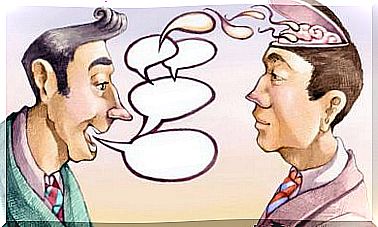Dreaded Consequences Require Lies, But Can Also Prevent Them

“Lying is easy. I’ve been doing it for over 50 years and it’s very easy when you know how to do it , ”James Randi, one of the most famous magicians of all time, is quoted as saying. But telling a lie in such a way that it passes for truth is not easy. Mainly because our minds often find it uncomfortable to betray what one likes to defend against others: honesty.
On the other hand, if someone lies to us and we catch them doing it, we are likely to feel small and vulnerable. Lies lead us to distrust the world and build armor around us under which we suffocate.
According to a study conducted at a US university in 2004, even the most honest people lie several times a day while they go about their daily business. We also regularly withhold information. This is a more subtle and therefore more accepted form of lying.
“A lie would be meaningless if the truth were not perceived as dangerous.”
Alfred Adler
Experts agree that the key to successful interpersonal relationships is prevention. But what if we’ve already become professional liars? The only way to stop a person from lying further is to define the consequences of that behavior. These can prevent the person concerned from continuing to deceive.

To do this, before any consequences are defined, it is first necessary to find out who is lying. And we have extensive information on traits that betray a liar:
- First of all, we would like to point out one of the main characteristics of people who hide information or distort the truth. You are constantly on the defensive. They are reluctant to work with others or to make statements because they cannot appear transparent and honest.
- When we withhold information, the gestures we use to accompany the lie often seem unnatural. That is why people who know us well will quickly feel that something is wrong, even if they do not initially know the reasons for it. Whether they then doubt our statements or attribute our behavior to another cause depends on various factors, such as our reputation or the plausibility of what we are claiming.
- Practiced and gifted liars may be able to better control their body language, and when they feel unable to do so , they may use an impersonal medium – paper, phone, or computer – to avoid suspicion.
- The less gifted liars or those who were unable to prevent the face-to-face conversation, on the other hand, avoid sitting across from the other person and, above all, do not look them in the eye.
- When we lie, using vague language helps us distance ourselves from the facts. The lack of detail also serves to make it difficult for another to analyze exactly what we lied about. In addition, it makes an accidental contradiction that would arouse suspicion less likely. After all, we also have to remember less when we provide less detailed information.
- It is true that even the most sincere people can make mistakes and inaccuracies. But it is obvious that we have no problem explaining these when asked to. On the other hand, when we meet a person who lies, he or she will do anything not to have to explain. And when the truth comes out, it will try to “correct” it quickly.
“The mind naturally creates and the will naturally loves; so that, in the absence of real objects, he has to stick to the fake ones. “
Blaise Pascal









